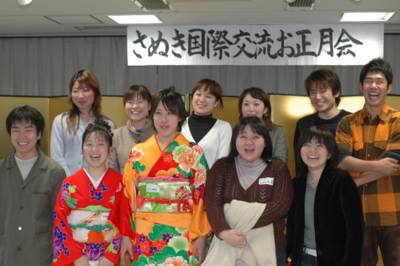
Mt. Fuji viewed from the 10th floor hotel room (C) Lrong Lim
Was at Tokyo over the last few days with a group of scholars from China, Vietnam, and Japan.
While I have collaborated with other researchers in the past, it was almost always on a one to one basis.
I had presumed that it was difficult to 'coordinate' if the group is large.
But I was surprised at how 'easy' and how much fun it was.
I absolutely enjoyed the time spent with those folks.
And what more, one of the Chinese scholars is the president of a major university in China, hosting about 5000 foreign students.
I normally don't fancy traveling in wintertime.
It is just too cold to be comfortable.
But luckily, the snow did not accumulate on the roads.
For two of the mornings, I woke up to glorious blue skies, with snow-capped Mt. Fuji sitting somewhat shyly in the backdrop of a clutter of high-rise buildings bathed by the morning sun.
Glorious, in the context of the gray and unexciting winter skies.
I had anticipated viewing Mt. Fuji on the flight to Haneda Airport and on the return trip.
I was to be disappointed on both counts.
On the way there, Mt. Fuji hid behind the sea of clouds.
On the return trip, the weather was marvelous, only that I sat on the wrong side of the fully loaded airplane.
I had my breakfasts at a nearby cafe, watching the crowds whizzing by.
One rainy morning, I was sipping my coffee and chewing the toast.
I observed there were twelve patrons in the no-smoking section.
All of them, except yours truly, were reading either newspapers or novels.
They looked so serious in their thoughts.
I gazed at the umbrellas of blue and white, red and yellow, slowly gliding away from my sight.
I had the honor of visiting Waseda University for the first time.
This 'ivy league' private university boasts a posh hotel as well as full-fledged Japanese garden in its grounds.
In the offices, the cotton-pressed 'waiters' served us aromatic hot coffee in chic porcelain just as in classy restaurants.
We managed to conduct an exhilarating session with the students of the Graduate School of Asia Pacific Studies.
Back in the hotel room, there were reports of the possibility of Japan having a lady emperor in the future.
The crown prince's only child is a little girl.
The current constitution states that only males can be emperors.
My thoughts switched to the world of sumo.
There are no lady professional sumo wrestlers and the tradition disallows females to even climb onto the ring, known as 'dohyo'.
The second of the six annual tournaments are held in Osaka.
For the last few years, Osaka has a female major.
And the Osaka Major gets to present the 'Mayor's Cup' to the tournament champion on the dohyo.
Only that, the major must be a male.
So goes the saga.
At the Catholic-established Sophia University where one of our research partners teaches, I was informed of a certain building that forbids females from entering.
I wonder why.
Back the possibility of a lady emperor.
Apparently, taxpayers will be further burdened because of the fact that more 'royal' families will have to be kept on succession line.
At the moment, princesses are not placed on line to succeed the throne.
Furthermore, once princesses marry, they lose their 'royal' status.
The other major line of talk is the treatment to be given to the spouse of the lady emperor.
On the ground, a majority of the Japanese people supports the prospects of a lady emperor.
Why not, they say.
After all, there have been a few lady emperors before in Japan.
Personally, I think so too.
Why not, I say, when in my little experience as a teacher, I have almost always observed that female students are more conscientious than male students.
Females will probably not make worse emperors than males.
Who knows, they may even make better emperors than males.
The debate continues...


